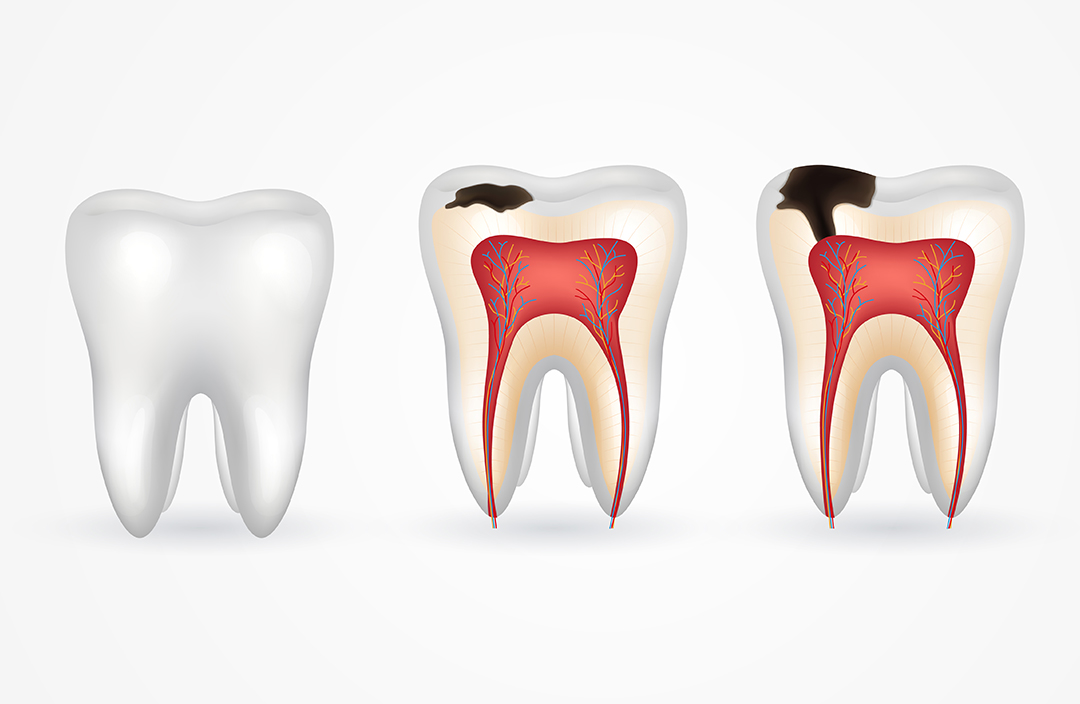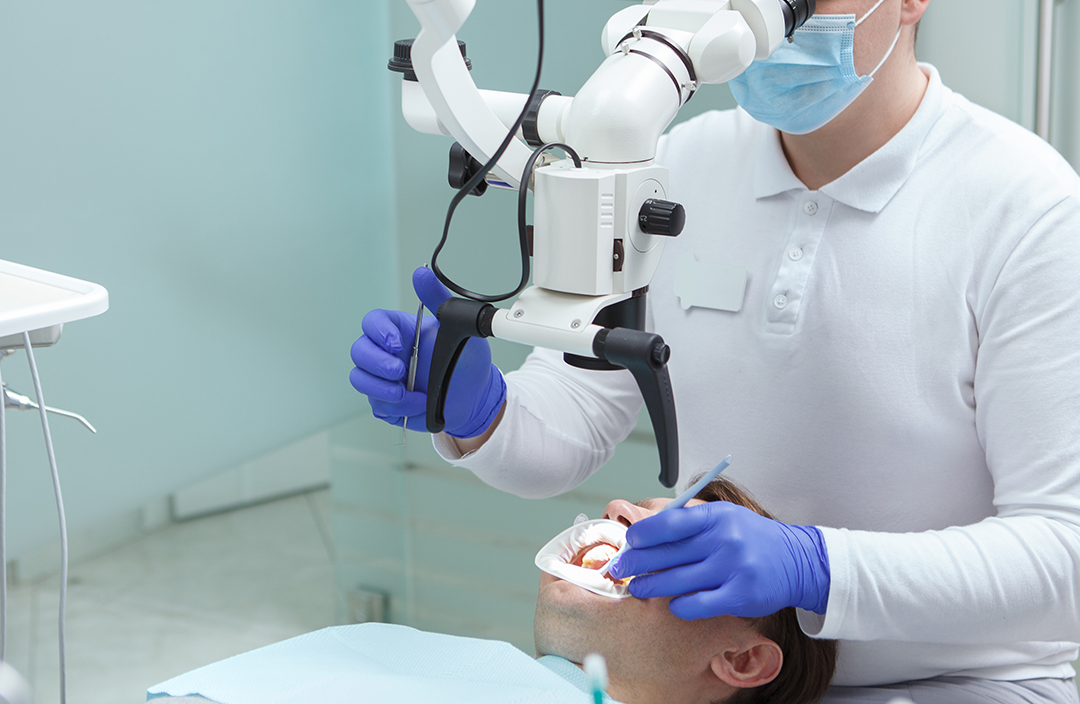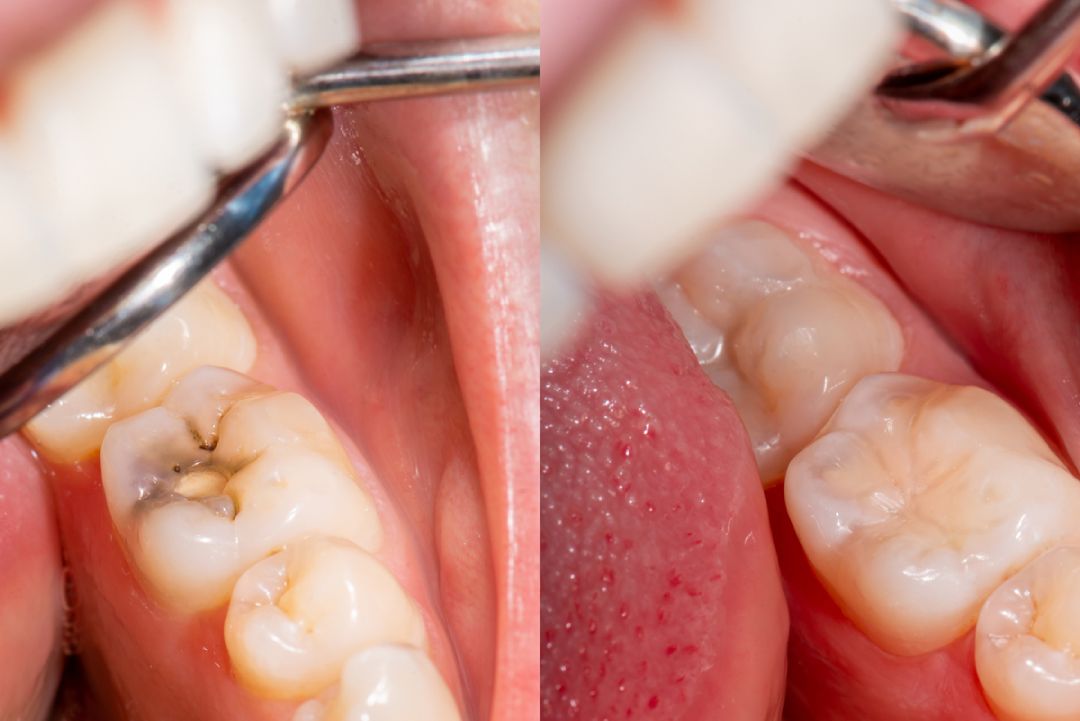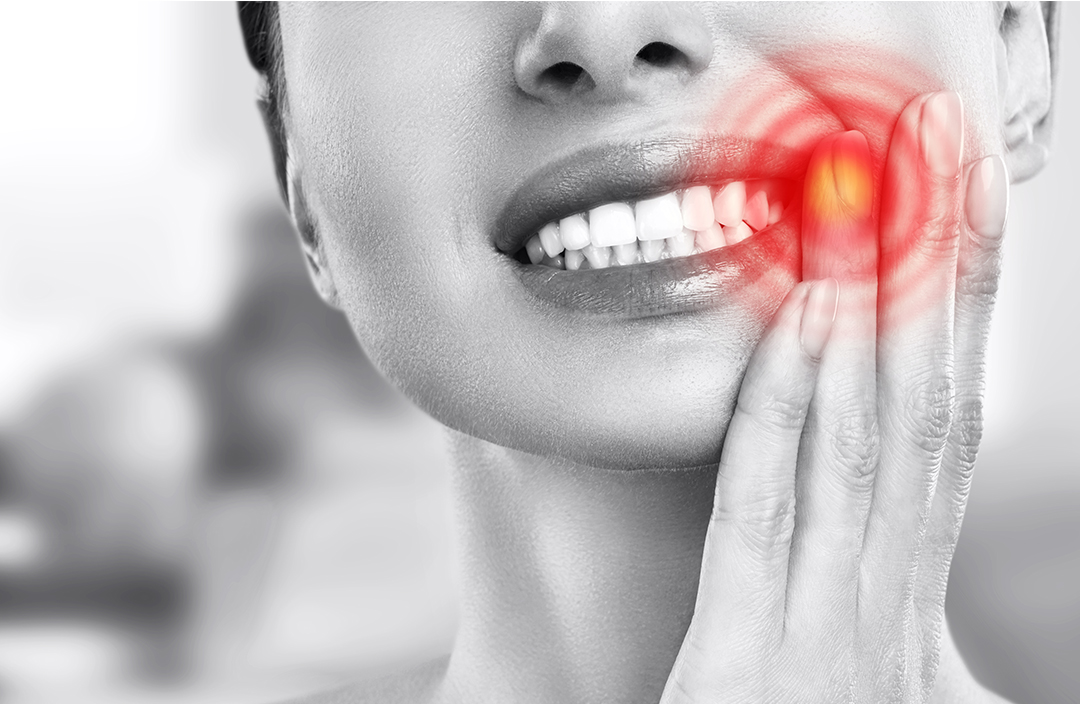Servicii
Treatment of dental cavities
Tooth decay is the destruction of the hard tissue of the tooth.
The dental cavity is the most frequent issue that can bring a person to the dentist’s office. Dental cavities appear when the tooth enamel and dentin are affected by acid erosion, after you’ve eaten or drunk something containing sugars. Over time, the acid creates a cavity (a hole) in the tooth, which you’ve heard of under the name dental cavity. Since faulty teeth may affect a person’s general health, it is important to prevent cavities, and if they still appear, you should come to the dentist from the early stages, in order to prevent any complications.
We take care of our patients
Why do dental cavities appear?
Dental cavities are caused by the acids in the bacterial plaque, which gradually dissolve the tooth’s enamel and dentin. Dental cavities affect teeth and may require the filling or even the extraction of the affected tooth.
Prevention:
Adequate oral hygiene may save you a lot of trouble related to the occurrence of dental cavities. Brush your teeth thoroughly at least twice a day, morning and evening, and ideally after every meal.
Proper oral hygiene performed at home should be also doubled by a prevention plan, which involves dental prophylaxis twice a year and an examination once every six months, in order to remove tartar and bacterial plaque professionally.




Signs that may suggest the presence of a dental cavity

Types of dental cavities
Depending on their location, dental cavities may be:
- Contact caries (fissures);
- Root caries (following gingival retraction);
- Caries on the lateral surfaces of the tooth;
- Occlusal caries (on the contact surfaces of teeth and molars);
- Interdental caries;
- Secondary caries (under existing fillings).
Treatment
The treatment of dental cavities involves cleaning the entire surface affected by the cavity and repairing the tooth using a filling. This will ensure that the tooth maintains its health for as long as possible.
Depending on the diagnosis, the treatment is customized, in order to achieve a fully functional and aesthetical rehabilitation of the affected tooth.
Contact us
Call us for an appointment
Dentist Appointment
Canal treatment
Frequent questions
What happens if you don’t treat a dental cavity?
Toothache is a sign that you should visit a dentist, and a warning that something is not right. If you don’t do anything, usually the problem will get worse, and you might end up losing a tooth that could have been easily saved.
Which areas of the tooth are more vulnerable to dental cavities?
The tooth’s surface areas and interdental surfaces are the most vulnerable to dental cavities because these are the areas where food remains and bacterial plaque build-up. But careful: any part of the tooth may be exposed!
What treatment should I follow?
If you have a less serious cavity, it should be removed, and the tooth will be repaired with a filling. Sometimes the nerve might also be affected, in which case we may decide that you need a root canal treatment, to remove the nerve and repair the tooth with a filling or a crown. If the cavity is so advanced that the tooth can no longer be repaired, you will need an extraction.
Can I do anything to protect my teeth against dental cavities?
When all adult molars appear and the teeth have no cavities, the sealing technique can be applied to protect them. Adults can also opt for this treatment, if they have no dental cavities. Children can also have fluorine treatments twice a year, which will reduce the chances for dental cavities to occur.
How can I prevent dental cavities?
The best way to prevent the occurrence of dental cavities is by thoroughly brushing your teeth in the morning and evening, and once more during the day, with fluoride toothpaste. Make sure to brush both the inner and the outer surfaces of your teeth. Interdental brushing, dental floss, or water flossers are also very beneficial in removing plaque and food that remains between your teeth and the area of contact with the gums. These areas are inaccessible to a toothbrush.
PATIENTS
Reviews
These are just a few of the Dent PLUS patients. We thank them for their trust in our doctors and clinics.